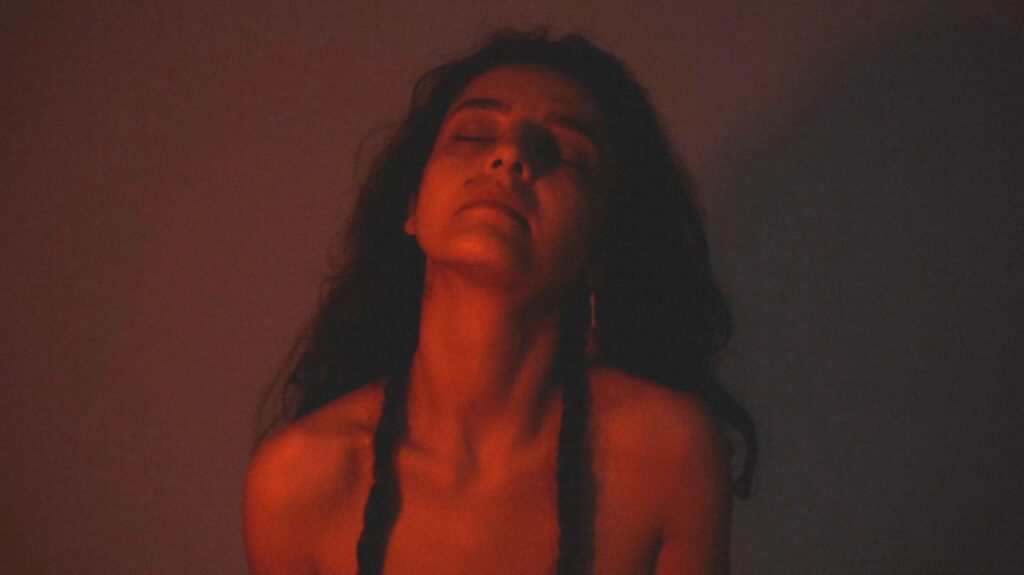‘Every Delinquency into Oblivion’, directed by Hugo Inglez and Roua Jafar, and starring Roua Jafar, is an experimental visual poem shaped by silence, memory, and displacement.
It opens on a beach. Jafar stands still, her eyes fixed on the lens, the world moving quietly behind her. Strangers walk, gulls hover, waves crawl. Her expression doesn’t change, but it carries weight – grief, restraint, maybe the echo of something she left behind. It’s not performative. It’s lived-in. And she holds the viewer there, suspended, until the shift.
The light dims. The colour deepens. We’re somewhere else now – interior, imagined, intimate. Her body is present, unclothed but never exposed. It’s not about nudity; it’s about stripping back everything imposed. Red lighting softens nothing. It’s moody, almost bruised. She’s vulnerable, but not passive.
No voice, no text. The soundtrack is sparse – occasional chimes, low ambience. Time stretches. Images linger. Then the veil appears. The mask follows. It’s not symbolic. It’s protection, ritual, a form of expression that doesn’t require language.
The cinematography by Inglez is precise and absorbing. It observes, never intrudes. Every frame feels intentional. The edit avoids structure. This is not a narrative – it’s sensation, recollection, resistance.
The film traces Roua Jafar’s 2014 journey from Syria to the Netherlands, one of the deadliest refugee routes in the world. But it doesn’t flatten that experience into a retelling. It keeps it whole, abstract, human. The short is quietly confrontational – unsettling in its intimacy, powerful in its restraint. It leaves space for feeling, for presence, for everything that can’t be said. A worthy watch.


